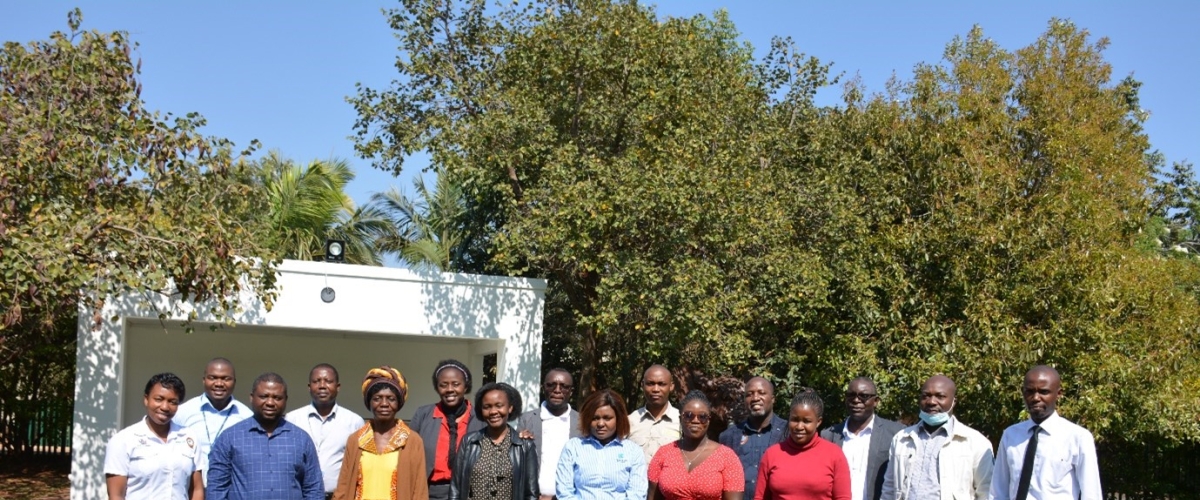
By Dorcas Kabuya
The Ministry of Agriculture and the Food and Agriculture Organisation of the United Nations (FAO) have developed three Plant Health Strategy Documents. The purpose of the strategy is to prevent entry, control the spread and manage Fall Armyworm (Spodoptera frugiperda), Maize Lethal Necrosis Disease (MLND) and Tomato Leaf Miner (Tuta Absoluta).
This came to light during the Stakeholder Pest Management Strategies validation workshop held in Chilanga through the Support Towards Operationalization of the SADC Regional Agricultural Policy (STOSAR) project, which FAO is administering with support from the Centre for Agriculture and Biosciences International (CABI). The objective of STOSAR is to manage transboundary pests and reduce their negative effects on food security and trade.
Plant Quarantine and Phytosanitary Services (PQPS) Director, Kenneth Msiska, said the development of these strategies is in line with the Southern Africa Development Community (SADC) call for member states to manage transboundary pests in the region.
Dr Msiska disclosed that SADC developed management strategies on five key priority pests and diseases: Fall Armyworm, Maize Lethal Necrosis disease, Fruit Flies, Tuta Absoluta and Banana Fusarium Wilt, tropical race 4, which member states were expected to develop national strategies. “To lead and guide member states, SADC developed management strategies that members’ states such as Zambia are expected and obligated to develop national strategies with modifications that suit individual countries,” he added.
Dr Msiska added that as far as Maize Lethal Necrosis Disease and the Fusarium Wilt, tropical race 4 was concerned, Zambia is still free from the presence of the two plant health problems as evident from the pest surveillance and monitoring surveys. “The thrust of the strategies for these two pests which have not yet been reported in the country will be more on introduction, prevention than on management interventions,” he noted. Dr Msiska said this in a speech read on his behalf by Principal Plant Health Inspector Mable Mudenda.
And FAO Country Representative, Suze Percy Filippini, noted that FAO remains committed to addressing the challenges that limit the performance of the agricultural sector and improving the management of transboundary pests. Speaking on behalf of FAO Country Representative, FAO Programmes Officer Zuba Mwanza noted that when the produce is disease free, the crops are highly likely to have better market access.
Mr Mwanza stated that FAO and CABI have worked closely to ensure that the project delivers on its objectives through effective collaboration with PQPS and Zambia Agricultural Research Institute (ZARI). “Through this project, FAO and CABI have been able to undertake a series of training, monitoring and surveillance and procurement of laboratory equipment under the plant health component of the project,” he said. Mr Mwanza further said that the FAO and CABI are delighted to contribute to strengthening the capacity of plant health diagnostics and plant protection in the country.
Meanwhile, Plant Pathologist from the ZARI, Mathias Tembo, while presenting the Strategy on MLND, noted that the disease has significantly affected countries where it has been detected, resulting in those countries failing to export maize seed. Mr Tembo disclosed that the presence of this disease in neighbouring countries like Tanzania and the Democratic Republic of Congo had allowed Zambia to export maize seed and grain, adding that this calls for concerted efforts to safeguard the country from being attacked by the MLND.
MLND is a viral disease and is also transmitted through the use of infected seeds. It can collapse the maize seed and grain industry if left unattended. And because of its transboundary nature, the presence of the disease in neighbouring countries is of great concern. The disease has high adaptability in diverse agroecological and weather conditions present in Africa, putting nations at high risk.
The author is an Agriculture Information Officer at the National Agricultural Information Services. She is also CCARDESA Information, Communication and Knowledge Management (ICKM) focal point person for Zambia






